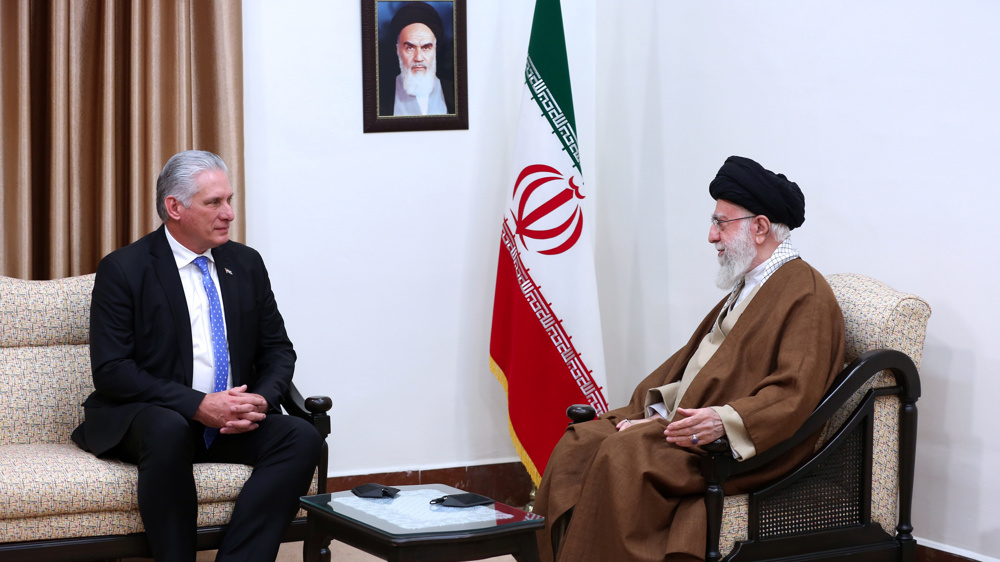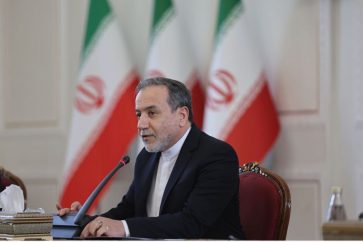In a historic meeting, Grand Ayatollah Imam Sayyed Ali Khamenei welcomed Cuban President Miguel Díaz-Canel to Tehran on Monday, marking the first visit by a Cuban president in over two decades.
Ayatollah Khamenei emphasized the need to leverage the significant political and economic capacities of both Iran and Cuba to forge a coalition aimed at countering the bullying tactics of the United States and its Western allies.
The meeting, which also included Iranian President Ebrahim Raisi, saw Ayatollah Khamenei highlighting the remarkable potential of Iran and Cuba. Ayatollah Khamenei specifically emphasized the economic aspects of this coalition, stating that through robust economic cooperation, the coalition could collectively and effectively address key international issues, notably highlighting the Palestinian cause as a focal point for collaborative action.
“With its focus on economic cooperation, this coalition can take a common and effective position on important international issues such as the Palestinian issue,” Imam Khamenei stated.
The Leader’s remarks underscored the strategic vision of leveraging the strengths of Iran and Cuba to foster a united front against external pressures, promoting cooperation on a global scale with a particular focus on significant geopolitical challenges such as the Palestinian issue.
Imam Khamenei reflected on the longstanding connection between Iranian revolutionaries and the Cuban revolution, attributing the appeal to the sincerity of the positions held by the late President Fidel Castro.

He also underscored the protracted suffering of the Palestinian people, emphasizing that the current Israeli aggression has laid bare the reality of the issue on the global stage.
Addressing the gathering, President Díaz-Canel affirmed the positive trajectory of relations between Cuba and Iran since the Islamic Revolution, with a focus on further strengthening ties, particularly in trade and the economy.
He stressed the potential for mutual support between the two nations in the face of American interventions and sanctions, highlighting the impact such collaboration could have on international issues, including the Palestinian cause.
Expressing concern over the silence of international entities regarding the Israeli aggression on the Gaza Strip, President Díaz-Canel strongly condemned the unfolding events in Gaza, categorizing them as an “unacceptable genocide.” He criticized international organizations for their apparent indifference to the escalating violence, pointing out that tens of thousands of civilians, predominantly children and women, have been killed in the besieged Gaza Strip.
Expressing dismay, the President drew attention to the stark contrast between the global outcry over the war between Ukraine and Russia and the relative silence surrounding the mass casualties in Gaza. This, he argued, revealed a disconcerting state of affairs on the world stage, highlighting the inconsistency and selective attention of international responses to humanitarian crises.

Source: Al-Manar English Website




